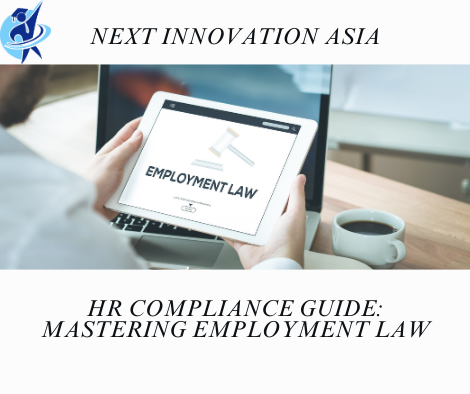Understanding Employment Law
Employment law encompasses the legal rights and obligations governing the workplace. HR professionals must be well-versed in these regulations to ensure compliance and protect both the organization and its employees. Key areas include:
- Wage and Hour Laws: Ensure compliance with minimum wage, overtime pay, and work hour regulations.
- Anti-Discrimination Laws: Understand laws prohibiting discrimination based on race, gender, age, disability, and more.
- Health and Safety Regulations: Adhere to Occupational Safety and Health Administration (OSHA) standards to maintain a safe work environment.
- Employee Rights: Respect employee rights to privacy, free speech, and fair treatment in disciplinary actions.
Key Compliance Areas for HR
HR professionals play a critical role in maintaining legal compliance in several key areas:
- Recruitment and Hiring: Ensure that job postings, interviews, and hiring practices comply with equal opportunity laws.
- Employee Documentation: Properly maintain employee records, including contracts, performance evaluations, and disciplinary actions.
- Workplace Harassment: Implement and enforce policies to prevent and address harassment, fostering a safe work environment.
- Termination Procedures: Follow legal guidelines for terminating employees, including notice periods, severance pay, and exit interviews.
Staying Updated on Legal Changes
Laws and regulations are constantly evolving, making it essential for HR professionals to stay informed:
- Regular Training: Attend workshops and seminars on employment law updates.
- Legal Resources: Subscribe to legal newsletters and updates from government agencies.
- Consultation with Legal Experts: Collaborate with legal counsel to ensure all HR practices are compliant with current laws.
Building a Culture of Compliance
Creating a workplace culture that prioritizes compliance is crucial for long-term success:
- Policy Development: Develop clear, concise policies that reflect legal requirements and communicate them to all employees.
- Training Programs: Provide regular training on compliance topics for HR staff and all employees.
- Monitoring and Auditing: Regularly audit HR practices to identify and rectify any compliance gaps.
Effective HR Compliance Practices
Implementing effective HR compliance practices can mitigate risks and protect the organization:
- Clear Communication: Ensure that all employees understand their rights and responsibilities under employment law.
- Consistent Enforcement: Apply policies consistently across the organization to prevent claims of unfair treatment.
- Documentation: Keep thorough documentation of all HR activities, including recruitment, disciplinary actions, and termination processes.
“Transform your HR career with certified training at Next Innovation Asia. Chennai’s premier institute offers job support too. Enroll now!”

